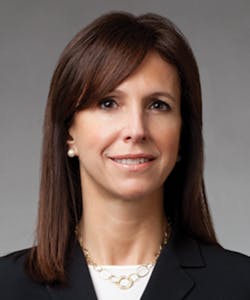As many healthcare organizations are in various stages of their digital transformation journeys, executives at leading health systems and hospitals are increasingly adding chief digital officers (CDOs) to their senior leadership teams.
According to a survey from PwC (PricewaterhouseCoopers) in early 2016, only 6 percent of the top 1,500 global companies had chief digital officers, at that time. But, the CDO is an emerging and fast-growing executive role in healthcare, as hospitals and health systems are looking for a key leader to manage overall digital strategy and the consumers’ digital experience. St. Louis-based Ascension, one of the largest U.S. health care systems with 153 hospitals, recently hired Eduardo Conrado as its first chief digital officer, charged with steering the health system’s digital strategy and accelerating digital initiatives. Conrado comes to Ascension from Motorola, where he recently served as chief strategy and innovation officer.
In a press release, Ascension president and CEO Anthony Tersigni, Ed.D., said the move to hire Conrado was in response to rapid changes impacting the healthcare industry. “As our industry and our ministry rapidly transform, new technologies and companies are disrupting the market at an ever-faster pace, and leaders are beginning to fully embrace digital solutions to unlock innovation and drive productivity, connectivity and engagement,” Tersigni stated.
Many health systems are tapping digital leaders from outside healthcare. Aaron Martin, chief digital officer at Seattle-based Providence St. Joseph Health, previously worked at Amazon. The key, many industry experts say, is that the healthcare CDO needs to have clinical and organizational understanding to succeed.
Given the ongoing focus on this role, Healthcare Informatics Associate Editor Heather Landi spoke with Hillary Ross, senior partner with the Oak Brook, Ill.-based executive search firm Witt/Kieffer, about the growing importance of the CDO role in healthcare, what skillsets are needed and the CDO’s relationship with the CIO and other C-suite leaders. Ross leads Witt/Kieffer's healthcare IT practice and specializes in the recruitment of senior-level physicians and other clinicians. Below are excerpts from that interview.
What is driving healthcare executives to add the chief digital officer role to their C-suite team?
When the healthcare landscape changed from fee-for-service to fee-for-value, and health systems started looking at driving value, I think that is what precipitated this. When you start looking at value, healthcare organizations started looking at patients as consumers, and consumers have a lot of choices in the market right now. Consumers go online to shop for their houses, their mortgages, their cars, their groceries, and they also have choices in their healthcare. Healthcare is beginning to recognize that patients have choices, and much of what they can offer a patient doesn’t just have to be within the four walls of the hospital.
Hillary Ross
Everyone says healthcare lags behind other industries, and we’ve definitely seen that with this role. The CDO has been in other industries for a long time, and now healthcare is starting to look at it as well. When we talk about this CDO, we’re really talking about the person that is going to be responsible for digital transformation across the healthcare ecosystem. It’s a critical business-focused role.
What are the key skillsets that a healthcare CDO should have?
It’s really about a confluence of experience and personal style. Personal style is critical to this position because this person is a change agent, their role is to take a health system’s belief system and change it. Their role is to bring digital automatization to the health system. It’s very much a forward-facing role more than an internal role. In terms of skillsets, ideally, this person would have experience leading digital transformation and have an understanding of the obstacles and challenges to deploying digital health as well as innovation and commercialization, and also have a background in technology.
We’re also seeing the rise of consumerism in healthcare. How does that intertwine with the CDO role?
The chief digital officer is focused on and obsessed with the patient and in creating choices for the patient, as well as patient engagement and patient experience, to keep existing patients and to drive new patients to the organization by connecting with them digitally and giving them choices.
Consumers’ expectations are changing, and they are used to having choices. Someone shared a story with me that brings this to life. A patient had a check-up with her doctor, and the doctor wanted her to get a heart exam. The doctor said it wasn’t covered by insurance and referred the patient to a facility that does heart scans at a cost of $250. She called her local hospital and found out that the hospital charges $450. She then went online and Googled “affordable heart scan” with her zip code and up popped a hospital 10 minutes from her house that was offering heart scans for $49. This story shows that patients are consumers, they are savvy, and they are going to start expecting more information and more choices. Hospitals that recognize this can drive new patients, keep patients, and ultimately drive revenue, but, all the time keeping their eye on the importance on the patient and excellent clinical care.
Are you seeing a lot of commonality with the roles and responsibilities of the CDO across organizations?
Organizations are trying to figure out this role; much the same way they tried to figure out the chief information officer (CIO) role 20 years ago. Organizations had a director of technology, someone who ran the “break and fix shop,” and then emerged a CIO and that role has really expanded and evolved over the years to become an extremely critical and key leadership executive. Technology enables the strategic goals of an organization, and the CIO leads that.
Much the same way, organizations are now trying to figure out how best to position this [CDO] and who best to lead it, and it will be a process. We see some organizations combining this role with other roles. In my view, this role is huge; digital is here to stay and it requires full focus and attention. I don’t think combining the CDO role with other roles is the best approach, it will dilute the importance of digitalization.
What are your thoughts on the appropriate reporting structure for this role?
It should be reporting to the CEO, ideally, and a peer to the CIO. The best model is a tight partnership between the CIO and the CDO. In terms of partnership with other senior leadership, as well, this person really sits at the intersection of clinical, technology, marketing and senior leadership. It’s a very collaborative role to drive that organizational change.
How does the emergence of this role impact the CIO role?
Some organizations will combine the role with the CIO role, but I think it should be separate. The CIO is a critical component of an organization; the CIO runs information systems and oversees applications, clinical systems, revenue cycle, human resource systems, security, the data warehouse, and sometimes, analytics. And then to add digital transformation to that role, [the CDO role] is not going to garner the full-time support that this role needs, and it will end up being one-off innovations, like a cool app here, or a telemedicine program, which is all important. But, you need really need someone creating a digital strategy, leading that strategy, implementing it and driving these changes. It’s a full-time role. The whole next wave of patients are Millennials, and they are driven by digital. For organizations that want to position themselves well for that next wave of patients, digitalization requires full-time attention.
Are healthcare organizations looking outside healthcare to recruit for these CDO positions?
We’re seeing healthcare organizations now looking for leadership outside of healthcare, and it’s interesting to watch those organizations and how those leaders outside of healthcare are navigating. Certainly, if you recruit outside healthcare, there is a going to be a learning curve for those executives. Do they speak the language of healthcare, and do they understand the intricacies; reimbursement, readmission, length of stay, hospital business operations? Those executives can transition, but it will take time and it will take strong healthcare leadership under them to help them with that transition.
Many times, we’re asked to produce slates of these candidates that come from within healthcare and outside healthcare because they want to compare and contrast. Generally, we’re seeing healthcare leaders will end up selecting those candidates from within healthcare because they can hit the ground running and they know how to navigate the hospital and understand their issues. But, there are those organizations that are looking to really innovate and shake things up, and they think those leaders outside healthcare can bring that innovation and fresh look. Those executives might have different ideas on consumer engagement and will focus on translating those ideas to healthcare.
The bottom line is, healthcare is all about the patients and being clinically excellent. And the difference is, when you look at leaders outside healthcare, it’s about profit and the bottom line. It’s a different mentality and focus. Anyone that comes from outside of healthcare, this CDO, is going to have to be mission-driven and passionate about the patient.
Do you have any predictions about the next emerging role in healthcare?
This role will be it. A talented CDO will be the best person to identify those next great ideas in healthcare; that’s why this role is so important.



